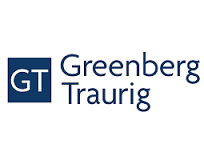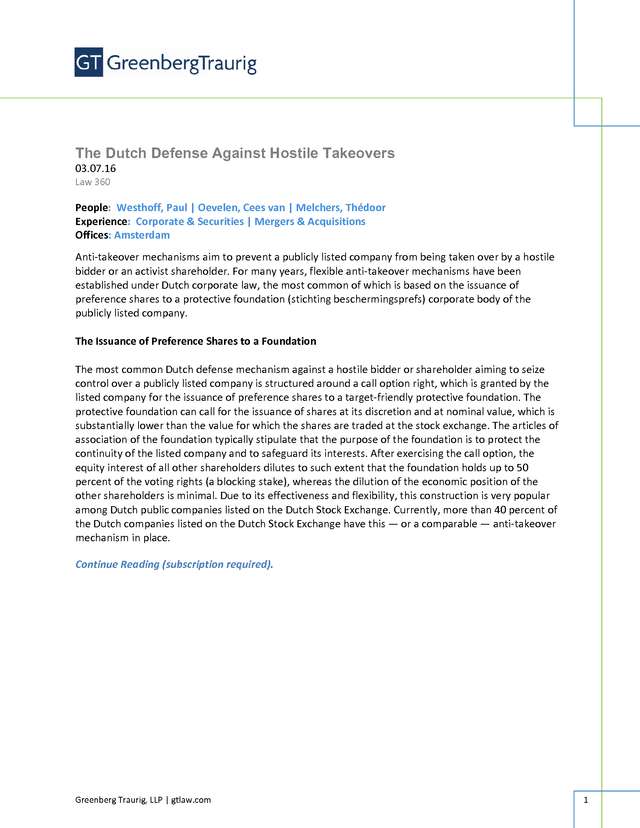The Dutch Defense Against Hostile Takeovers - Anti-takeover mechanisms to prevent a publicly listed company – March 7, 2016
Greenberg Traurig
Description
The Dutch Defense Against Hostile Takeovers
03.07.16
Law 360
People: Westhoff, Paul | Oevelen, Cees van | Melchers, Thédoor
Experience: Corporate & Securities | Mergers & Acquisitions
Offices: Amsterdam
Anti-takeover mechanisms aim to prevent a publicly listed company from being taken over by a hostile
bidder or an activist shareholder. For many years, flexible anti-takeover mechanisms have been
established under Dutch corporate law, the most common of which is based on the issuance of
preference shares to a protective foundation (stichting beschermingsprefs) corporate body of the
publicly listed company.
The Issuance of Preference Shares to a Foundation
The most common Dutch defense mechanism against a hostile bidder or shareholder aiming to seize
control over a publicly listed company is structured around a call option right, which is granted by the
listed company for the issuance of preference shares to a target-friendly protective foundation. The
protective foundation can call for the issuance of shares at its discretion and at nominal value, which is
substantially lower than the value for which the shares are traded at the stock exchange. The articles of
association of the foundation typically stipulate that the purpose of the foundation is to protect the
continuity of the listed company and to safeguard its interests.
After exercising the call option, the equity interest of all other shareholders dilutes to such extent that the foundation holds up to 50 percent of the voting rights (a blocking stake), whereas the dilution of the economic position of the other shareholders is minimal. Due to its effectiveness and flexibility, this construction is very popular among Dutch public companies listed on the Dutch Stock Exchange. Currently, more than 40 percent of the Dutch companies listed on the Dutch Stock Exchange have this — or a comparable — anti-takeover mechanism in place. Continue Reading (subscription required). Greenberg Traurig, LLP | gtlaw.com 1 .
After exercising the call option, the equity interest of all other shareholders dilutes to such extent that the foundation holds up to 50 percent of the voting rights (a blocking stake), whereas the dilution of the economic position of the other shareholders is minimal. Due to its effectiveness and flexibility, this construction is very popular among Dutch public companies listed on the Dutch Stock Exchange. Currently, more than 40 percent of the Dutch companies listed on the Dutch Stock Exchange have this — or a comparable — anti-takeover mechanism in place. Continue Reading (subscription required). Greenberg Traurig, LLP | gtlaw.com 1 .











